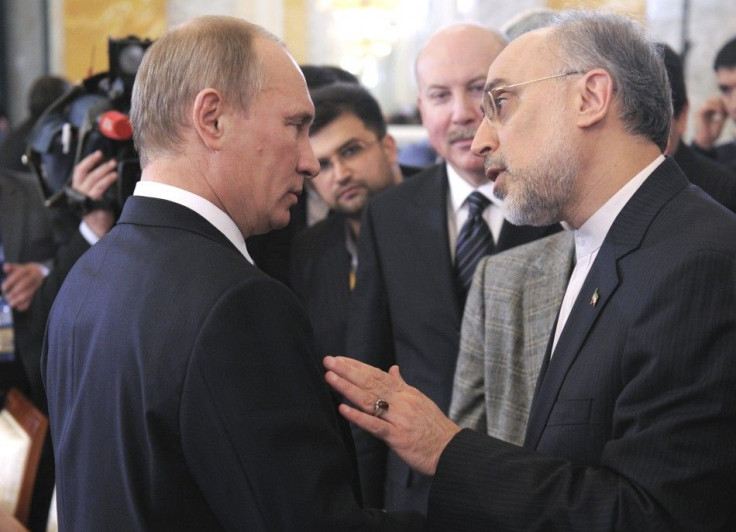Russia: Ahead of Elections, Examining Moscow’s Trade Links
ANALYSIS

Russia has come under severe criticism from both Western nations and many Arab countries for its strong support of two states that are deemed pariahs in the Middle East: Syria and Iran.
Russia, along with China, has repeatedly thwarted efforts by the United States, the European Union and the United Nations to condemn the violence perpetrated by Syria's President Bashar al-Assad. This loyalty to Assad (whose forces are believed to have killed at least 7,000 people over the past 11 months) has outraged even Arab states that usually side with Moscow.
The Russians have also defended Iran from Western plans to attack its nuclear program and have warned Israel not to launch military strikes on the Islamic republic.
International Business Times spoke to an expert on Russia to discuss Moscow’s trade relationships and also its ties to Damascus and Tehran.
Laza Kekic is regional director for Central and Eastern Europe forecasting at the Economist Intelligence Unit.
IB TIMES: Russia has steadfastly remained loyal to its allies Syria and Iran, despite mounting pressure from the West and other countries to impose sanctions on them. From a purely economic perspective, how heavily invested is Russia in Iran and Syria? Does it have much trade with them? Or is it primarily an arms-military relationship?
KEKIC: Although precise data is not available, Russia's investment links with Syria and Iran are limited. Trade is more important, especially with Iran, but is not an important driver of Russian foreign policy.
IB TIMES: Is the EU still Russia's largest trade partner? If so, does this relationship mean Moscow has -- to some degree – abide by Western Europe's geopolitical wishes?
KEKIC: Yes, the EU is Russia's main trade partner. Obviously, this does not mean that Russia would in any way abide by Western Europe's geopolitical wishes. The trade dependence is mutual. The EU depends to a large extent on Russian energy, and Russia cannot easily sell the bulk of its energy to anyone other than Western Europe.
IB TIMES: How big is Russia's trade relationships with China and India? Is it increasing?
KEKIC: It is big and increasing, but much more so with respect to China. China is now -- by some distance -- Russia's main foreign trade partner (if we look at countries and not groupings like the EU). This position was traditionally held by Germany.
IB TIMES: Is oil Russia's principal export? Who are their biggest oil buyers?
KEKIC: Oil is the main export. Energy and metals form more than two-thirds of Russia's merchandise exports.
IB TIMES: If Russia, as expected, finalizes its already-approved accession to the World Trade Organization by mid-2012, how will that affect the country's economy and export business?
KEKIC: The impact will be limited as is usually the case for commodity exporters -- unlike, say China, which relies on manufacturing. At the margin, it will have some positive influence on Russia's difficult business environment.
IB TIMES: Does Russia have any exposure to the euro zone debt crisis?
KEKIC: Yes, some, via financial channels. But Russia is less exposed than rest of Europe.
IB TIMES: Ahead of the presidential election, Vladimir Putin seems to be ramping up his rhetoric against the West. Is this mostly “hot air,” or would he really seek to reduce Russia's economic ties with Europe and the U.S.?
KEKIC: It is neither just “hot air” nor a sign that he wants to reduce economic ties. At the same time, Russia will pursue its own political interests, which often clash with those of the West.
© Copyright IBTimes 2024. All rights reserved.





















